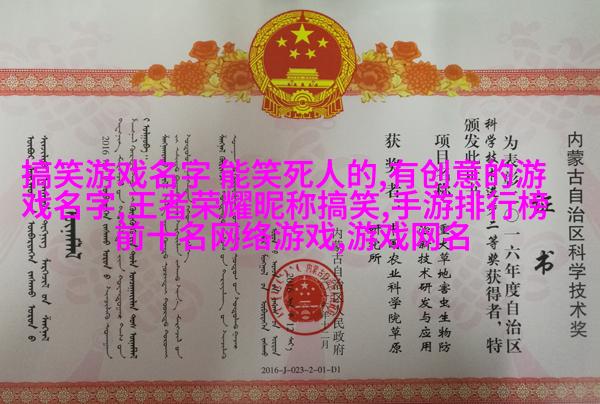您现在的位置是: 首页 - 游戏网名 - Sweet Melody Crafting the Perfect English Nickname 游戏网名
Sweet Melody Crafting the Perfect English Nickname
2025-05-15 【游戏网名】 6人已围观
简介Sweet Melody: Crafting the Perfect English Nickname for a Chinese Girl The Rise of English Nicknames Among Chinese Girls In recent years, it has become increasingly popular for Chinese girls to adopt
Sweet Melody: Crafting the Perfect English Nickname for a Chinese Girl

The Rise of English Nicknames Among Chinese Girls
In recent years, it has become increasingly popular for Chinese girls to adopt English nicknames as part of their online personas. This trend can be attributed to the growing influence of Western culture and technology in China, as well as the desire among young people to express themselves more freely and creatively.

Factors Influencing the Choice of an English Nickname
When choosing an English nickname, there are several factors that may influence a girl's decision. These include personal preferences such as sound and meaning, cultural associations with certain words or names, and even social media trends. For example, some girls may choose a name that reflects their personality or interests, while others may opt for a name that is currently trending on social media platforms.

Characteristics of Engaging English Nicknames
An effective English nickname should be easy to remember and pronounce for both native speakers and non-native speakers alike. It should also be unique enough to stand out from other nicknames but not so unusual that it becomes difficult for others to understand or relate to it.

Examples of Popular English Nicknames Among Chinese Girls
There are many examples of popular English nicknames among Chinese girls today. Some common choices include Lily (a symbol of purity), Daisy (representing innocence), Rose (symbolizing love), Violet (representing modesty) - all these names have been traditionally associated with positive qualities in Eastern cultures.

Cultural Significance Behind Choosing anEnglish Name vs A Traditional One
For many young women in China today, adopting an English nickname represents more than just a preference for aesthetics; it is often seen as part of their identity formation process within this digital age where global communication plays such a significant role in shaping one's self-image.
This choice reflects not only individualism but also intercultural understanding between East and West.
By embracing different linguistic styles through naming conventions
Chinese youth demonstrate adaptability amidst globalization.
The use of "English" versus traditional "Chinese" names thus carries distinct symbolic meanings:
The former represents openness towards diversity
The latter signifies connection with heritage
Both carry important implications regarding cultural values
In conclusion
the adoption by young women from China using "English" instead
of traditional "Chinese" names serves both personal expression \





